
Explore Our 16 Strategies for Improving Salesforce Adoption
Did you know that around 77% of sellers cannot efficiently complete their tasks? Lack of productivity can result in lost sales, poor customer relations, and inability to complete everyday tasks. Many organizations devote a large portion of their budget to tools and programs designed to streamline their operations. However, one of the main hurdles facing CEOs and sales executives is failing to onboard

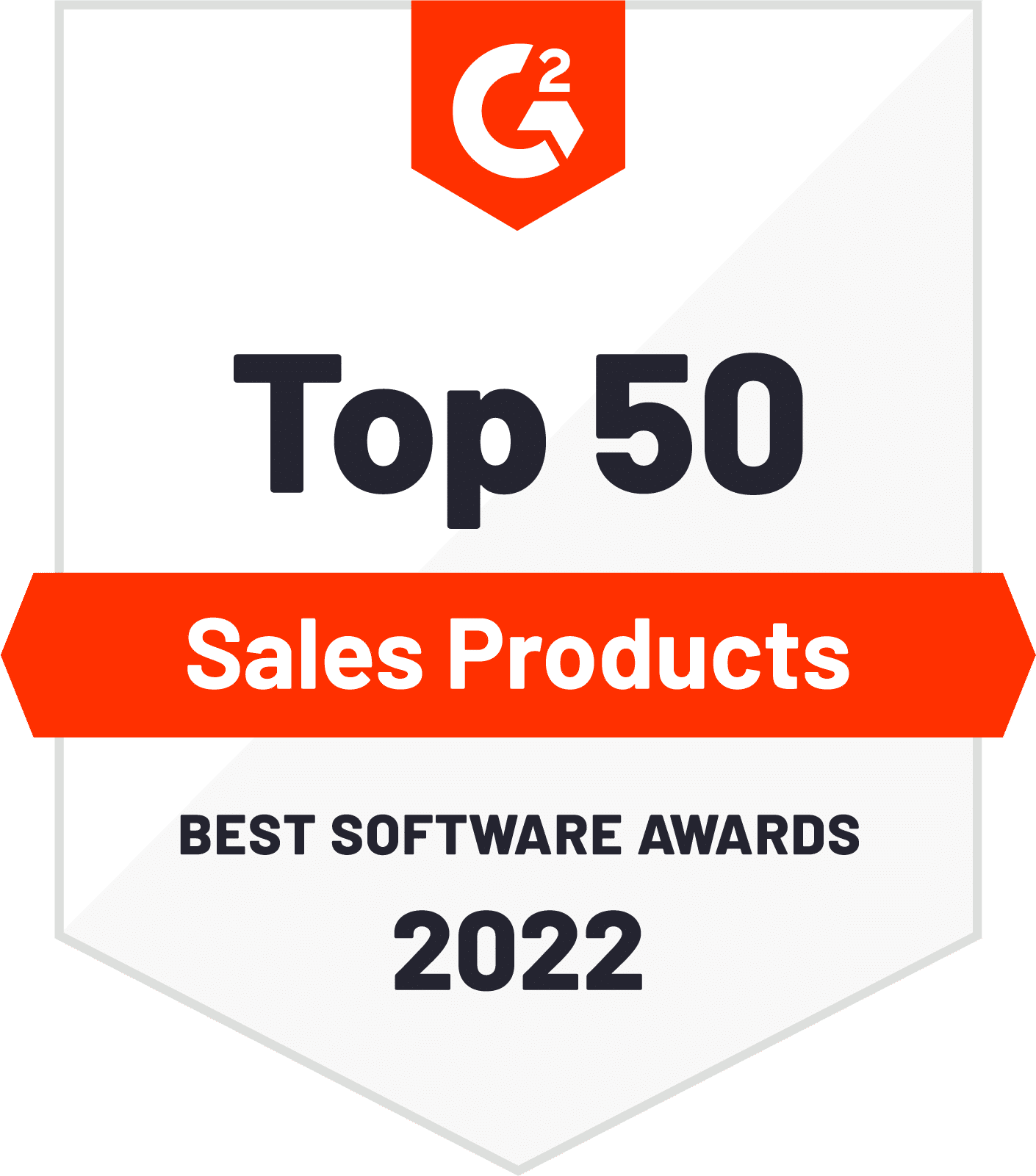
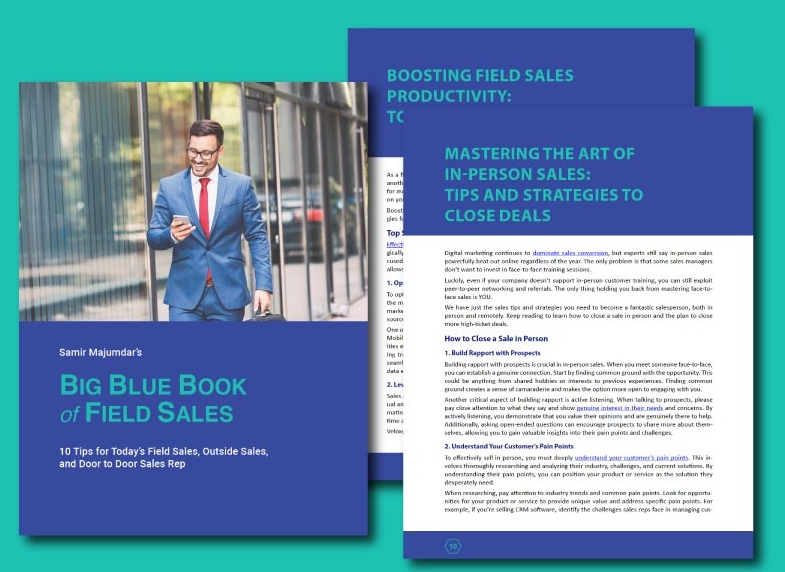
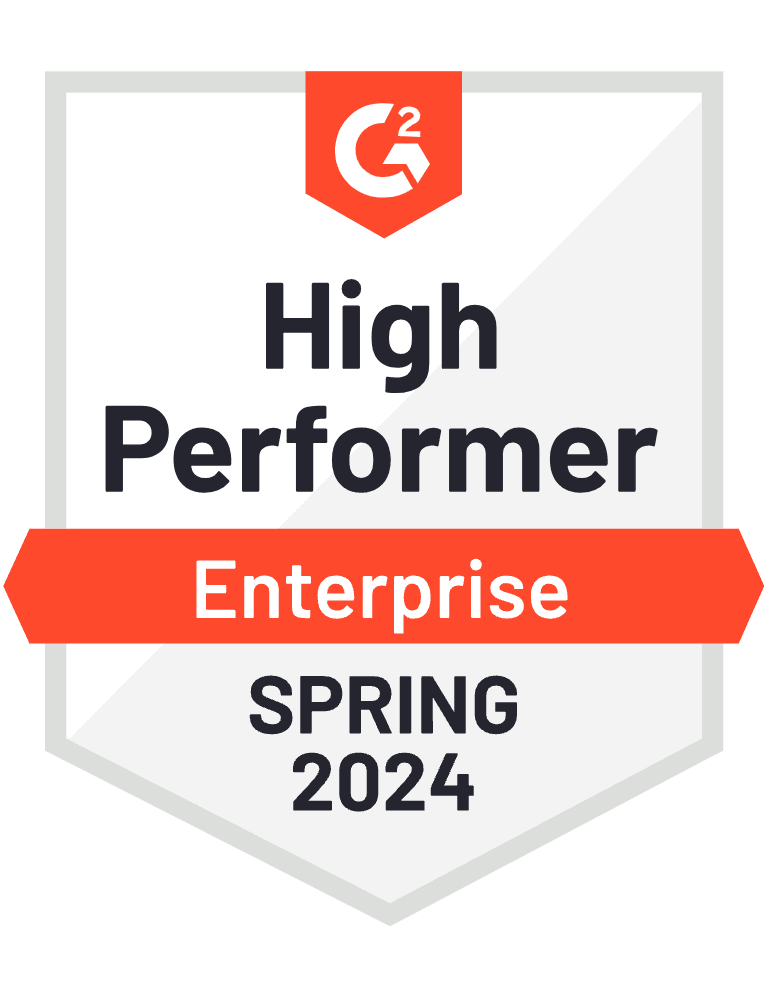

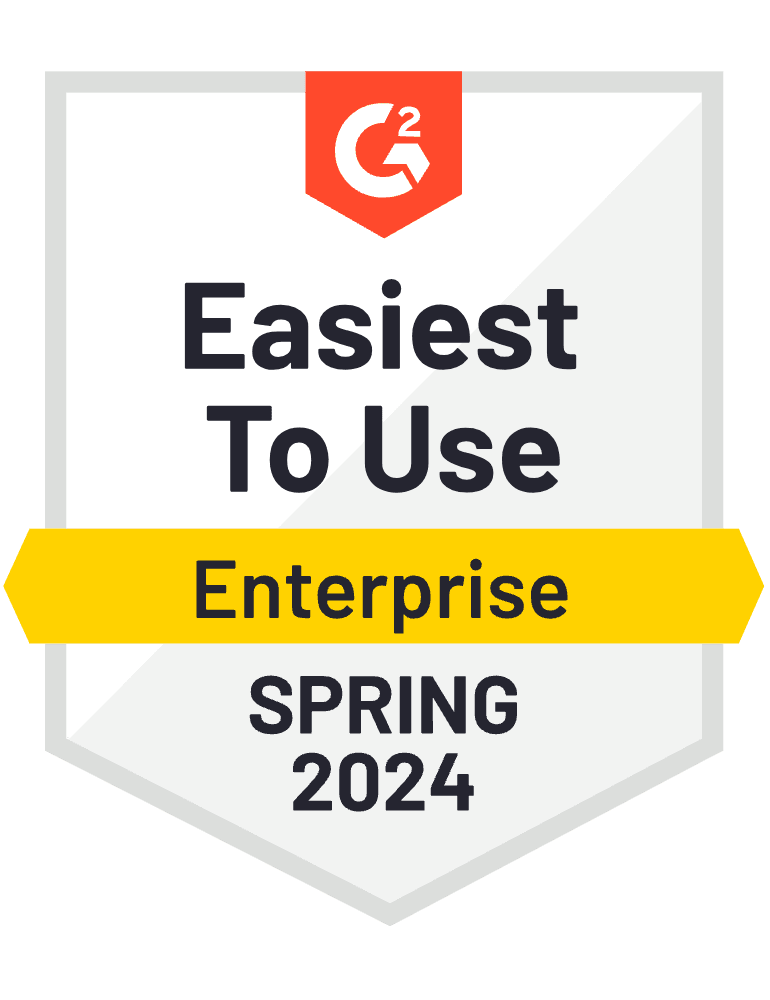
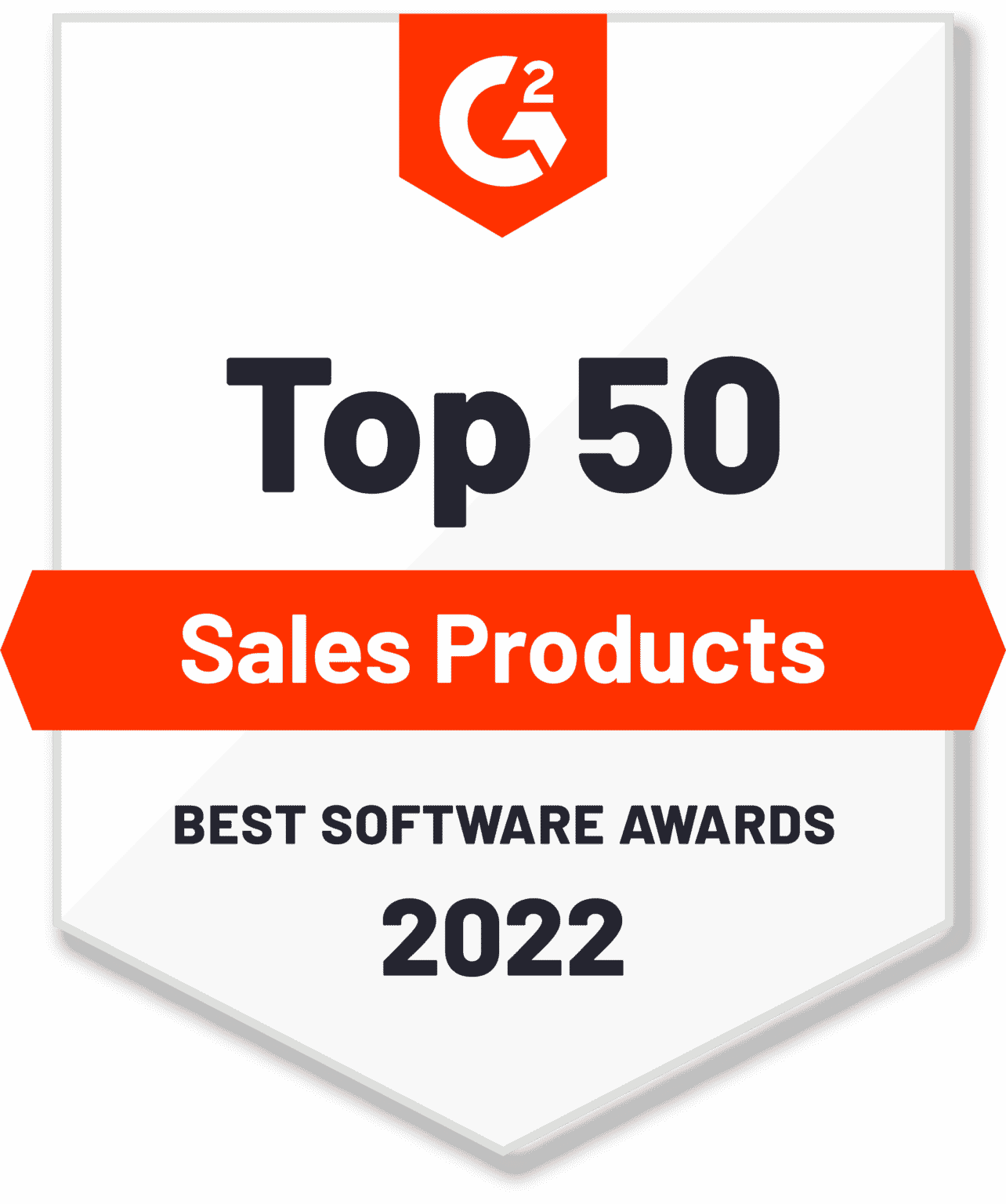


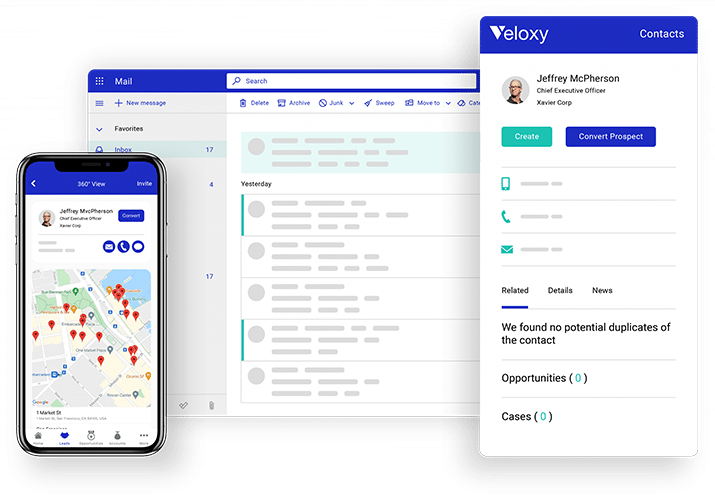




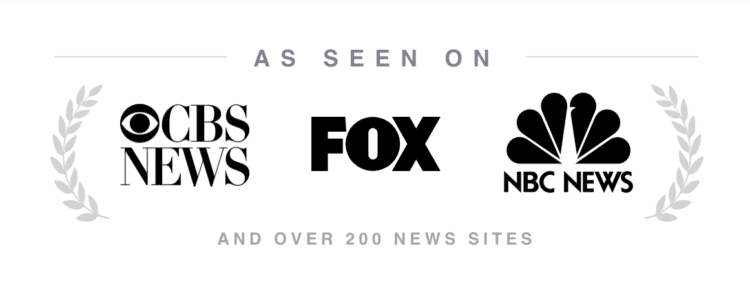

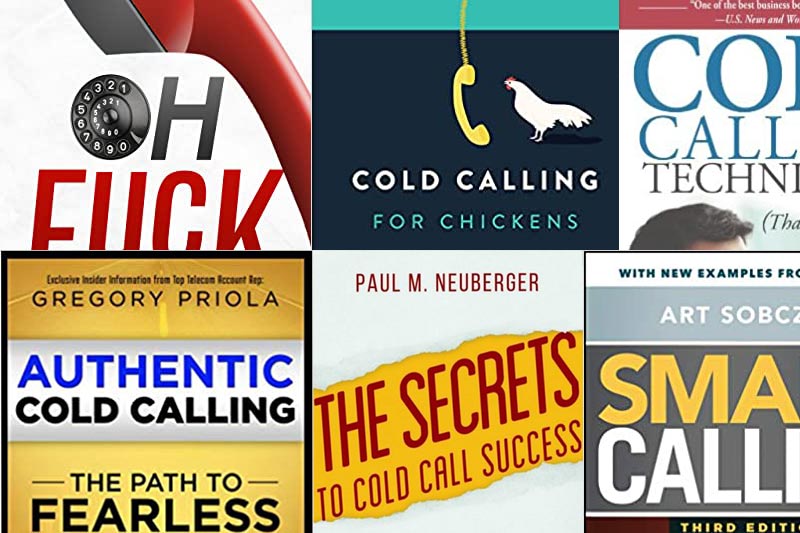







Did you know that asking questions makes it more likely for customers to approve of you? It’s true. Research conducted at Harvard University suggests asking questions improves liking and learning.
Open ended sales questions are a crucial aspect of the sales process. They allow salespeople such as yourself to better understand the customer’s needs, goals, and challenges. This leads to higher levels of trust and rapport, and ultimately more closed deals.
In this article, we’ll review the 12 types of open ended questions to ask, when to ask them, and other emerging best practices.
Additionally, we’ll cover some of the common mistakes to avoid when asking open ended sales questions.
With the information in this blog, you’ll have a better understanding of how to effectively use open ended questions to drive your sales success (especially if you’re in field sales).
Let’s get started (or fast forward using the table of contents below)!
Free Download: Sales Question Bank & Playbook [sales funnel chart included!]
What are open ended sales questions?
Open ended sales questions are questions that cannot be answered with a simple “yes” or “no”. They force the customer to think and respond with an insightful answer. This is why open ended questions are great for gathering information and understanding the needs, wants, and pain points of a customer.
Here are the five most popular open ended sales questions we use at Veloxy:
Kudos to Jordan Belfort for the last three questions.
What's the difference between open ended and close ended questions?
Close ended questions are questions that can be answered with a “yes” or “no,” or with a specific piece of information. They usually sound like “Should we schedule 15 minutes?” or “What is your current CRM?”
On the other hand, open-ended questions encourage dialogue and gather in-depth information about a person’s thoughts, feelings, or experiences. Open-ended questions usually start with phrases like “How do you feel about…,” or “What do you think about…”.
In general, close ended questions are best for gathering clear, straightforward information, while open ended questions are better for exploring a topic in more detail and building rapport with the person you’re speaking with.
Five examples of close ended sales questions
Why should you ask open ended sales questions?
There is an endless debate on which question type is better. While close ended questions give you faster and direct results, open ended questions deliver richer and more valuable insights.
Here are the top five reasons you should ask more open ended questions:
1. Better understand customer needs and pain points
If you were to ask ten prospects, “Do you wish you could improve the productivity of your team by two or three times?”, you’d likely get ten yeses. Unfortunately, a “yes” does not help you better qualify a customer.
On the other hand, if you were to ask ten prospects, “What do you think is preventing your team from doubling their productivity?”, you’d get answers that are uniquely insightful to each account.
2. Build stronger rapport and trust
Salesforce recently shared that buyer expectations have been rising for the past four years. Customers want salespeople to act as trusted advisors, nurturing a positive and reciprocal buyer-seller relationship.
Customers who have a poor buyer experience have noticed that close ended questions dominate correspondence with salespeople. The only way you’re going to build stronger rapport and trust with buyers is if you demonstrate genuine interest in improving their life. Consistently asking relevant and timely open ended questions will get you there.
3. Gather in-depth information
Have you ever looked at someone’s dating profile? It’s the answers to open ended questions that peak the interest of bachelors and bachelorettes.
The same is true in sales. If your CRM records are dominated by close ended data, you’re likely losing out on a lot of pipeline and closed deals. Collaborate with marketing on a progressive profiling initiative. By tracking customer website visits and incorporating open ended questions in forms, you’re one step closer to having a biography of your customers in your CRM.
4. Avoid current and future objections
Go back up to the top of this blog post and review Jordan Belfort’s three-step open ended sales sequence.
Not only do those answers give you rich insight, but they also tell you about your customer’s past and current state, and what their ideal future state looks like. If your sales team doesn’t have one already, take the lead and work with them to develop a chronological series of open ended questions for each step of the buyers journey.
5. Improve chances of closing the sale
Have you ever had a salesperson send you a birthday card? It may seem small, but it’s the thought that counts. The same is true with open ended sales data.
Buyers know that you have dozens of clients, not to mention hundreds or thousands of prospects and leads. When you reach out with a question that references a conversation from six to twelve months ago, those “You remembered!” moments go a long way to close more deals.
12 types of open ended sales questions (and examples)
Not all open ended questions are created equal. Some are best suited for prospects, while others are suited for legacy clients. Whatever your need is, be sure to reference the below directory of 82 open ended sales questions:
1. Pain point questions
Did you know that the average employee is interrupted from their work 56 times a day? Most of those interruptions are of little to no relevance to you and your proposed solution. This is why asking the right open ended pain point questions is key, especially when engaging with prospects and leads.
2. Benefit focused questions
How big is your tech stack? The average sales tech stack has 27 tools. Pair this with the fact that salespeople are overwhelmed by the size and features of their stacks, and you have purchases void of benefit focused questions.
If buyers and sellers were involved in benefits focused dialogue, they wouldn’t have overlapping solutions that deliver similar or conflicting benefits. Get down to the specifics. Your customer will thank you for their improved efficiencies.
3. Decision making questions
It’s no coincidence that an increase in buyer standards is accompanied by an increase in account based selling.
Gone are the days of selling one to one. You’re not only working up and down the org chart to close deals—you’re inviting people across your organization to sell into accounts collaboratively. Having these “decision making process” questions answered beforehand will accelerate your selling process.
4. Opportunity focused questions
At the end of the day, you’re looking to fill your pipeline with more opportunities. These questions will help you uncover new business opportunities and explore ways that your product or service can be applied in new and innovative methods.
Steve Jobs knew the power questions had in helping land new opps.
“Most people never pick up the phone and call, most people never ask. And that’s what separates, sometimes, the people that do things from the people that just dream about them.“
Be the one that asks more questions to get more opportunities!
5. Objection handling questions
Unless you’re selling something truly innovative, you’re likely working to displace a competitor. This means you’re going to have to address objections, concerns, and perceptions that the customer has with your product or service.
Don’t be discouraged by this all too common selling experience. By asking the right sequence of objection handling questions, you’ll place yourself on the fast track to displacing more competitors.
6. Discovery based questions
Have you ever watched a video of a Paleontologist dig up a dinosaur fossil? They focus on an area of interest and patiently dig until they uncover their treasured finding.
As a salesperson, a good series of discovery based questions can predictably lead you to more treasured insight. Information gathered from the following questions will help you position your product or service as the best solution to the customer’s needs, and build a more effective sales pitch.
7. Solution focused questions
Is it time we stop using the word “solution“? Using it interchangeably with your product or service’s category is definitely tiring most buyers. The solution to this problem? Understand what “solution” means to your buyer.
The following six questions are designed to help you understand the customer’s perspective and how they see the product or service fitting into their operations and solving their problems. The more you understand what solution means to them, the more you’re going to solve their problems.
8. Role focused questions
Like most people, buyers can be flattered. Complement your buyers’ rising standards with questions about their role at the company. Don’t make the mistake of circumnavigating the buyer’s uniqueness to address pain points and discovery.
As you and I both know, not all positions are identical. All you need to do is look up job postings on LinkedIn or Indeed. The responsibilities and measures of success change by organization and industry.
9. Need focused questions
Wants and needs. You and I have been learning about the difference between the two since Economics 101. While there is power in discovering the wants of your customers, you still need to uncover that “something” which will solve a problem.
Why? Because nine times out of ten, your customer does not know what they need. Isn’t that a powerful statement! Here’s an exciting tip. Tap into the subconscious of your buyer by phrasing the beginning of your question with “Do me a favor. In only 20 seconds,…” The less time they have to answer, the more accurate their answer will be.
10. Goal focused questions
Did you know that as many as 90% of organizations will fail to reach their goals this year?
It’s true. And here’s the scary thing. Your customers know it, whether they want to admit it or not. As a salesperson, you can help your customer in two ways. One, work with your customer to separate and highlight personal, departmental, and organizational goals. Two, apply account based selling to get everyone on the same page. Start by asking the below open ended sales questions.
11. Performance focused questions
While you may not be selling to other sales professionals, rest assured your buyer has their own set of key performance indicators. It’s critical for you to not just discover what these KPIs are, but which ones are lagging and how you and your solution can help improve performance.
Your buyers don’t want to get fired or passed over for a promotion. They want to be the “MVP” of the company, and well respected by the C-suite.
12. History focused questions
Buyers frequently find themselves living in the present and future too much. There’s much to learn from their past at the organization. History focused questions are great for understanding your customers’ past experiences and approaches, and positioning your solution as a means to improve upon those experiences.
By asking the customer how they have addressed similar challenges in the past, the salesperson can gain valuable insights into the customer’s decision-making processes, the solutions they have tried, and the results they have achieved.
Find Steven Power’s high-quality questions by clicking here
10 mistakes to avoid when asking open ended sales questions
Just because a sales question is open ended does not mean it’s a quality ask. While our 82 questions are a great start for you, be sure to personalize it to your buyer personas, solution, company, and industry.
There’s ten other things to take into consideration when choosing the optimal open ended sales questions. Continue reading below to learn more.
1. Not listening actively
It’s important to listen carefully to the customer’s response to your open-ended questions. Avoid interrupting or getting sidetracked by your own thoughts and ideas.
Here’s another useful tip: After the correspondence has ended, spend five minutes coming up with the next series of open ended questions. This will demonstrate you were paying attention and valuing the buyer’s insights. Schedule a task in your CRM with the questions as notes.
2. Being too pushy
Open ended questions should be used to build rapport and understanding, not to pressure the customer into making a decision. Avoid using aggressive or confrontational language when asking questions.
Here’s another useful tip: Avoid the perception that you’re being pushy or “salesy” by complimenting your customer on their response. “That’s really interesting…” or “You’re right, I’ve never thought about it that way…” are great starters that will further build rapport.
3. Asking too many questions at once
Stick to one open-ended question at a time, and allow the customer to fully respond before asking the next question. Overloading the customer with too many questions can be overwhelming and detract from the effectiveness of your sales pitch.
Here’s another useful tip: Build “credits” with your customers by improvisationally sending valuable content, insights, or “gifts” (eg. a book). Doing this without an ask will prompt your customer to initiate the next engagement.
4. Not tailoring the questions to the customer
Open-ended questions should be tailored to the customer’s specific situation and needs. Avoid using generic or canned questions that don’t relate to the customer’s situation.
Here’s another useful tip: Always keep tabs on your customer’s social activity—especially LinkedIn and Twitter. You’ll be surprised what they’ll share with their social network that they won’t share with you or other salespeople.
5. Being too vague
Make sure your open-ended questions are clear and specific. Avoid using vague or broad questions that don’t provide valuable information.
Here’s another useful tip: If your sales org uses Slack, create a channel called #open-ended-questions. Here you and your team can benefit each other by sharing questions that get the best results.
6. Failing to follow up
Once the customer has responded to a question, it’s important to follow up with additional questions to gather more information. Avoid failing to follow up or moving on to a new topic too quickly.
Here’s another useful tip: Use a Lead Prioritization AI tool that automatically schedules a personalized follow up. Our Mobile App accomplishes this for field sales professionals.
7. Not understanding the customer's perspective
Make sure you understand the customer’s perspective and goals before asking open-ended questions. Avoid asking questions that don’t relate to the customer’s situation or needs.
Here’s another useful tip: You and I can relate to buyers. They’re busy. We’re busy. Never forget to invite them to schedule time on their calendar. To further incentivize them to do so, create a longer event type in your Calendly or Chili Piper app that specifies you treating them to a $5 or $10 Starbucks gift card.
8. Ignoring body language
Pay attention to the customer’s body language when asking open-ended questions. Avoid ignoring signs of discomfort or disinterest, as these can indicate that the customer is not engaged or interested in the conversation.
Here’s another useful tip: If you’re talking with buyers over the phone, be attentive to heavy exhales or quick rises in their tone. If you’re corresponding with buyers using email, keep an eye out for brevity and a lack of salutation.
9. Being too salesy
Open ended questions should be used to build rapport and understanding, not to pitch the customer on the product or service. Avoid being too focused on making a sale, and instead focus on building a relationship with the customer.
Here’s another useful tip: In an office setting, it’s hard to prioritize a personal relationship over a professional one. However, if done the right way, building a personal relationship that’s akin to a friendship can eliminate the salesy perception forever.
10. Not being flexible
Be prepared to adjust your approach based on the customer’s response to your open-ended questions. Avoid being rigid or inflexible in your sales pitch, and instead be willing to adapt and tailor your approach to the customer’s needs.
Here’s another useful tip: Have you seen the movie ‘Miracle on 34th Street’? Santa Claus refers an unhappy prospective customer to a competing store. Now, that’s not always relevant in your sales situations, however, if you do that, or if you invite your customer to a Zoom call with your product management team, the rewards you’ll reap will be long-lasting.
Should I use open ended sales questions in email?
Yes, open-ended sales questions can be used in email (esp. cold email) as well as in other forms of communication such as in-person or over the phone. When using sales questions in email, the following guidelines can be helpful:
1. Use clear and concise language
The recipient should be able to understand the question and respond easily without confusion.
Open ended sales questions can be long, though. One trick is to work on fitting the question into the subject line. There are only 60 characters in an email’s subject line, so try shortening the question to six words or keep all the juice in the front of the question to build curiosity.
2. Keep the email brief
Long, complex emails can be difficult to read and can discourage the recipient from responding.
If you’ve already exchanged phone calls and emails, have the confidence to write an email that only contains the following three elements:
3. Encourage a response
Use a friendly tone and make it clear that you are looking for a response. This can be achieved by using a specific call to action at the end of the email.
Also, scanning your customer’s LinkedIn profile can help you further personalize the email. When I note a buyer’s collegiate institutions, I’ll ask “What do you think the score of tomorrow’s game will be between [their alma mater] and [other school]?”
4. Provide context
Explain the purpose of the email and why you are asking the open-ended question. This will help the recipient understand the importance of the question and encourage them to respond.
For those customers that don’t seem to reply often, feel free to drop a note that reads something like this “My CEO [insert name] wants to know what you think.” It’s a unique way to flatter the customer while also encouraging them to help you.
5. Follow up
If you do not receive a response within a reasonable timeframe, it is appropriate to follow up with a friendly reminder email.
If you could add everything in one email to get a response, you would. However that’s not realistic. Reply to the email you sent your customer with a “I forgot to send this to you in my last email asking about your [insert question’s topic].” Add more value to the email conversation and prompt them to find your last email. Your email tracking software should tell if this tactic worked.
Should I use open ended sales questions on the phone?
Yes, using open-ended sales questions on the phone can be an effective way to gather information, build relationships, and advance the sales process. When making a sales call, it’s important to use active listening skills, engage with the customer, and ask questions that will help you understand their needs and challenges.
Open-ended sales questions are particularly useful on the phone because they allow the customer to share their thoughts and perspectives freely and in-depth. This can provide valuable information that can be used to position your product or service as a solution to their needs.
When using sales questions on the phone, it is important to:
1. Listen actively
Pay close attention to the customer’s response and ask clarifying questions if needed.
Another useful tip is to remain silent for two to three seconds after the buyer stops responding. More times than not, your customer will continue elaborating on their response rather than asking “Are you still there?”
2. Show genuine interest
Show that you are interested in their thoughts and opinions by using active listening skills and responding to their answers with follow-up questions.
This is also a perfect time to translate your emotions over the phone. Communicating excitement, confirming eureka moments, and sharing gratitude are all great paths to success.
3. Build rapport
Build a connection with the customer by using a friendly and professional tone and making them feel valued.
Find common interests by asking questions or reviewing their online profile. Human beings are “herd oriented”, so the more you have in common with them, the better it will be for information gathering.
4. Stay focused
Stay focused on the conversation and avoid getting sidetracked by other distractions.
The best way to accomplish this is to go into the call with two or three goals, and once you get what you’re asking for, be the one who initiates the end of the call. Buyers find that most salespeople want to drag out the call, so staying focused and letting them get back to their day will work wonders.
5. Respect their time
Be mindful of the customer’s time and keep the call concise and to the point.
Inserting the message “I’ll only be a few minutes, unless you see value in talking a few minutes longer.” has been one of the most useful tactics to gather more information on each call. It shows that you respect their time, but it also hints that there’s value in what you have to share.
Why are open ended sales questions best asked in person?
Open-ended sales questions are often best asked in person because they allow for face-to-face interaction, which can provide several benefits:
1. Non verbal cues
When speaking to someone in person, you can observe their body language and non-verbal cues, which can provide valuable information about their thoughts and feelings.
Use the mirror methodology. If you want the buyer to be calm, cool, and collected, then you have to personify that behavior from the onset of the conversation. Don’t pivot, either. Your customers will follow your lead.
2. Best way to build rapport
Face-to-face interaction can help build rapport and establish a connection with the customer, making it easier to have a productive conversation.
Shaking hands, being able to lean in, and exchanging tangible assets (eg. documents, gifts) all have a positive impact on strengthening the buyer-seller relationship.
3. Clarity
When asking open-ended questions in person, it is easier to clarify questions and understand the customer’s response.
You’re not going anywhere. And neither is your customer. They know this, which is why they’ll take the time to expand on talking points that they otherwise wouldn’t over the phone or in an email.
4. Personal touch
Meeting with a customer in person can show that you value their time and are committed to finding a solution to their needs.
As I mentioned earlier, handshakes and content can do wonders for building rapport. Go a step further and meet your customer at lunch or for coffee. More casual settings around food and drink offers a personal touch that you can’t acquire in an office setting.
5. Improving credibility
In-person meetings can help build credibility and demonstrate your expertise, making it easier to position your product or service as a solution to their needs.
Over the phone and through email, you’re just a name and a voice. Buyers are more guarded than ever now that companies are using automated messaging and dialers, and fake email personas. In person correspondence is undefeated in overcoming such concerns.
What are some common trends in open ended sales questioning?
These trends reflect a shift in sales approach towards a more customer-focused and collaborative approach. Get ahead of your competing sales reps by applying the following trends that we’re observing when surveying the market:
1. Customer centric focus
Customer-centric open-ended sales questions are designed to focus on the customer and their needs, rather than on the product or service being sold.
As you’ll find in the aforementioned State of Sales Report and our State of Field Sales Report, Customer Experience is by far the most important KPI to both sellers and buyers. The more your open ended questions resonate with your buyers, the more you’ll be perceived as a trusted advisor.
2. Collaborative approach
Open ended sales questions are often framed in a collaborative manner, with the salesperson and customer working together to find a solution.
Today, this approach has expanded throughout both organizations. Sellers are inviting marketing, other sales reps, and other departments to the conversation. Buyers are welcoming this approach because it enhances levels of trust and credibility while lowering skepticism.
3. Empathetic approach
Compassionate open-ended sales questions are designed to help the salesperson understand the customer’s perspective and build a more emotional rapport with them.
Covid changed many things in how sales interacts with buyers. Today, salespeople are communicating empathy, and discovering and nurturing emotional talking points that focus on the buyer’s “human” pain points, rather than their professional pain points.
What open ended questions should buyers ask sellers?
You’re a high performing sales professional. But, that doesn’t mean you don’t have influence or authority to purchase solutions for yourself or your sales team.
As a buyers, you should ask open-ended questions that help you understand the seller’s offering, their experience and expertise, and the potential benefits and drawbacks of working with them.
Here are a few examples that you can use:
Bonus questions from Steven Power's 'Power Selling'
If you’re like me, Steven Power’s best-selling book ‘Power Selling’ is one of your go-to reads (buy it here).
There’s a near infinite supply of wisdom in Steven’s book. Here, we’re sharing his favorite “big picture” questions that get to the heart of an executive’s goals and objectives:
Final thoughts
Asking more open ended sales questions will help you get more visibility into an account’s decision making process. Plus, you’ll quickly earn the trust of each stakeholder (all information that should be accessible from your field sales app!).
Please share this blog post with the rest of your sales team. It can quickly generate results up and down your sales process.
And if you have any additions to our 82 open-ended sales questions, drop us a line on LinkedIn or Twitter.
Looking for a shortcut to success for your field sales team? Schedule your free consultation NOW!